FK Partizan
Fudbalski klub Partizan (Serbian Cyrillic: Фудбалски клуб Партизан, IPA: [fûdbalskiː klûːb partǐzaːn]; English: Partizan Football Club) is a Serbian professional football club based in Belgrade. It forms a major part of the Partizan multi-sport club.[2] The club plays in the Serbian SuperLiga and has spent its entire history in the top tier of Yugoslav and Serbian football having won a total of 45 official trophies: 27 national championships, 16 national cups, 1 national supercup, 1 Mitropa Cup[3] finishing in the Yugoslav league all-time table as second.[4]
 | ||||
| Full name | Фудбалски клуб Партизан Fudbalski klub Partizan (Partizan Football Club) | |||
|---|---|---|---|---|
| Nickname(s) | Црно-бели / Crno-beli (The Black-Whites) Парни ваљак / Parni valjak (The Steamroller) | |||
| Founded | 4 October 1945 | |||
| Ground | Partizan Stadium | |||
| Capacity | 32,710[1] | |||
| President | Milorad Vučelić | |||
| Head coach | Savo Milošević | |||
| League | Serbian SuperLiga | |||
| 2019–20 | Serbian SuperLiga, 2nd | |||
| Website | Club website | |||
|
| ||||
| Active sport clubs of JSD Partizan |
|---|
Partizan was founded by young high officers of the Yugoslav People's Army (JNA) in 1945 in Belgrade, as part of the Yugoslav Sports Association Partizan.[5] Their home ground is the Partizan Stadium in Belgrade, where they have played since 1949.[6] Partizan holds records such as playing in the first European Champions Cup match on 4 September, 1955,[7] as well as becoming the first Balkan and Eastern European football club to reach the European Champions Cup final, when it did so in 1966.[8] Partizan was the first Serbian club to compete in the group stage of the UEFA Champions League.
The club has a long-standing rivalry with Red Star Belgrade. Matches between these two clubs are known as the Eternal Derby ("Večiti derbi") and rate as one of the greatest cross-town clashes in the world.[9] Partizan also has many supporters in all the other former-Yugoslav republics and in the Serbian diaspora.[10][11]
Their popular nickname 'The Steamroller' (Parni valjak) was originally used in the press report after the 7-1 hammering of Red Star at the 13th Eternal Derby on 6 December 1953.[12] This nickname was later embedded in the lyrics of the club anthem.[13] Genuine steamroller painted in black and white was wheeled out next to the pitch on 28 May 1978, during the 8th league title celebrations.[14]
Partizan Youth Academy is one of the most renowned and export-oriented in Europe. CIES (University of Neuchâtel International Centre for Sports Studies) Football Observatory report of November 2015 ranks Partizan Belgrade at the top place of training clubs out of the 31 European leagues surveyed.[15] CIES report of 2019 confirmed Partizan Belgrade as the most productive training club in Europe, with 75 of their academy graduates currently playing across 31 European top divisions.[16]
Crest and colours
In October 1945, Partizan adopted as their first crest a blue disc with a yellow bordered red five-pointed star in the middle, which symbolized communism,[98] and contained the abbreviation JA (Jugoslovenska Armija, The Yugoslav Army) inside it. Later on, the central circle became white with a red five-pointed star in it. It was surrounded by a larger blue circle in which the words "the Yugoslav Army" were written, while both circles were bordered by a yellow circle with a green wreath over it. At the bottom of the emblem was a shield with red and white lines, and on the top were five torches, each representing one of the five nations of Yugoslavia (Serbs, Croats, Slovenes, Macedonians and Montenegrins). This was a clear reference to the National Emblem of Yugoslavia.[99]
| Crests | |||||||||||
|---|---|---|---|---|---|---|---|---|---|---|---|
 |
 |
 |
 |
 | |||||||
In the early 1950s, Partizan was separated from the Yugoslav Army and for the first time the team's name was written in the Cyrillic and Latin alphabets. The inscription of the Yugoslav Army was removed from the crest, along with the green wreath, and was replaced by the words Sportsko Društvo (Sports association). Partizan used this emblem until 1958, although it changed its equipment colors of blue and red to black and white a year before. The crest was also changed to be completely black and white, and Sportsko Društvo was amended into Jugoslovensko Sportsko Društvo (Yugoslav Sports Association), while the five red torches and the five-pointed star remained.[99] It was slightly redesigned after 1963 by adding a sixth torch to reflect the change of the official state emblem, which now included six torches representing six Yugoslav republics,[98] instead of the previous five representing the nations. The crest remained unchanged until the breakup of Yugoslavia.

By 1992, with Yugoslavia fragmenting, instead of "Jugoslovensko Sportsko Društvo", the word "Fudbalski klub" ("football club") were inserted and this crest remains in use too this day. The author of the crest was academic painter Branko Šotra.[99] In the 2007–08 season, Partizan won its 20th national championship and added two stars above their crest, symbolizing the 20 titles won.[99][100] However, there is an alternative crest, which Partizan supporters call the "shovel" but it is never used in official matches.[99]
Stjepan Bobek, in an informal interview with the Belgrade media.[101]
For most of its history, Partizan has played in black and white striped jerseys, but during its earliest days it used entirely dark red, blue or white jerseys.[102] In 1950, Partizan briefly had an all-white shirt with a blue diagonal stripe, besides an all blue shirt.[102] From 1952, the first red-blue striped and quartered jerseys appeared.[102] In 1957, the club was on tour in South America and after a friendly game with Juventus, a president of the Italian club, Umberto Agnelli, donated the club two sets of black and white jerseys.[101] Since then, Partizan has played mainly in black and white striped shirts,[102] with black or white shorts and socks.[103] But there were exceptions, like in 1974, when they wore a black and white hooped shirt, and 1982, when they have played in a plain white jerseys with a thick black stripe across them.[102] In 1990, the red and blue jersey returned after more than 30 years, in an away match against Hibernians during the UEFA Cup campaign. All this time, the away shirts have been mostly either all white or occasionally red-blue striped, but in recent years an all-black strip is usually used.[102]
Stadium and training ground
The stadium's name is Partizan Stadium, although it was known as JNA Stadium (Serbian: Стадион Југословенске народне армије, romanized: Stadion JNA (Stadion Jugoslovenske narodne armije), "Stadium of the Yugoslav People's Army") for most of its history, and even today, a lot of football fans in all countries of the former-Yugoslavia call it by its old name. Partizan supporters sometimes call it "Fudbalski hram" (The Temple of Football).[104]
The stadium is situated in the Savski Venac municipality, in central Belgrade. Designed by architect Mihailo Janković, the ground was built on the site of BSK Stadium.[105] It was officially opened on Day of Yugoslav People's Army on 22 December 1951.[106] The first match ever played was between Yugoslavia and France on 9 October 1949.[6] The stadium had a capacity of 55,000 until it was renovated in 1998 following UEFA security regulations.[6] This led to the conversion of the stadium into an all-seater reducing the capacity to 32.710,[107] currently the second largest stadium in Serbia, behind the Red Star Stadium.[104]
The ground has also been used for a variety of other sport events since 1949. It was used from the mid-fifties until 1987 as the final point of yearly festivities called the Youth Day.[108] Also, it was the host of the 1962 European Athletics Championships, a place for various concerts and it hosted many times the Yugoslav Cup and Serbian Cup final.[109][110]
Partizan youth school and affiliates
The Partizan youth school, called Youth School Belin – Lazarević – Nadoveza, was founded in the 1950s and named after former Partizan players Bruno Belin, Čedomir Lazarević and Branko Nadoveza.[111] The club is well known for its dedicated work with youngsters.[111] Its training philosophy is not only the development of football players, but also to care of their growth and personality forming, while also teaching the sporting spirit.[111] There are around 400 youngsters classified by age categories.[111] There are six age groups, four compete at the level of the Football Association of Serbia, the U17, U16, U15 and U14, while the U13 and U12 compete at the level of the Football Association of Belgrade.[111] Below U12 level there are no official competitions, but players do play in tournaments and friendly matches.[111]
Partizan is the club with the most league titles and cup wins in youth competition in Serbia.[111] The youth teams also participate in numerous tournaments around Europe and also organize an U17 international tournament with participation of some of the top European clubs.[111] Partizan also organizes football camps for children in Serbia, Montenegro, Bosnia and Herzegovina, Slovenia, Australia[111][112] and the United States.[112][113] Many of the best youth-academy players move directly to the Partizan senior side, or to the affiliate club Teleoptik Zemun.[111]
All of Partizan's youth categories train at the Partizan sports complex named SC Partizan-Teleoptik, along with Partizan's seniors and the players of Teleoptik.[114] Partizan has won several awards for its youth work, including "Best European Youth Work" in 2006,[115] and the club's youth school has been declared the second-best in Europe after that of Ajax.[116] Partizan's academy has produced numerous professional football players or Yugoslav and Serbian internationals. Notable players from the recent past include Saša Ilić, Savo Milošević, Danko Lazović, Stefan Babović, Miralem Sulejmani, Stevan Jovetić, Adem Ljajić, Matija Nastasić, Lazar Marković, Miloš Jojić, Andrija Živković, Nikola Milenković, and Aleksandar Mitrović.
Two Partizan youth academy graduates (Dušan Vlahović and Strahinja Pavlović) are featured in UEFA.com 'Fifty for the Future' selection in 2020.[117]
Supporters

According to a 2008 domestic poll, Partizan is the second popular football club in Serbia, behind Red Star Belgrade.[118] Although fewer, focus groups show that Partizan fans are considered to be more devoted to their club.[119] The club has a large fanbase in Montenegro,[120] Bosnia and Herzegovina (especially in the Serb entity of Republika Srpska). They also have many supporters in all other former-Yugoslav republics like North Macedonia,[10] Slovenia,[121] and among the Serbian diaspora, especially in Germany,[122] Austria,[122] Switzerland,[121] Sweden,[122] Canada, Malta, the United States and Australia.
The organized supporters of Partizan are called Grobari ("The Gravediggers" or "Undertakers"),[123] which were formed in 1970 and situated mainly on the south stand of the Partizan Stadium; therefore, they are also known as Grobari Jug ("The Undertakers South").[122] Even some ordinary Partizan fans often refer to themselves as Grobari. The nickname itself was given by their sporting rivals Delije of Red Star, referring to the club's mostly black colours which were similar to the official uniforms of cemetery undertakers.[123] The other theory is that the name comes from a misinterpretation of the name of the street on which Partizan's stadium is located – "Humska" ("humka" roughly translates as "grave" or "entombment"),[122] when actually the street was named after Serbian medieval land of Hum, nowadays part of Herzegovina and South Dalmatia. The Grobari support all clubs in the Partizan Sports Association and in the course of time they have become recognizable by their noisy and constant cheering as well as their devotion and loyalty to the club.[124] The basis of their cheering is referred in the Serbian fan scene as the principle of "srce, ruke, glas" (heart, hands, voice) or "glas i dlan" (voice and palms),[124] along with songs in distinctive style.[124] The Grobari as a whole maintain a close friendship with the organized supporters of PAOK, CSKA Moscow and CSKA Sofia,[125][126] which started originally because of the two supporters' common Orthodox faith and similar founding backgrounds. It has been suggested that "many ultras took part in the armed conflicts and carry their scars today, translating the tribal nature of the Yugoslav wars to their clubs and ultras groups".[127]
Grobari have also a traditional friendship with Juventude Leonina, the main ultras group of Portuguese side Sporting Clube de Portugal.[128] The direction boards of both clubs have also good relations which was kept ever since the 1955–56 European Cup edition, which on 4 September 1955, in Lisbon's Estádio Nacional, put head-a-head the two teams in what was considered the opening whistle of the UEFA European club competitions. The game finished with a 3–3 draw, with Sporting later losing in Belgrade in the second hand by 5–2, however the club boards of both teams regularly meet from time to time to mark the occasion of this historic event.
Rivalries

Partizan's biggest rivalry is with Red Star Belgrade.[129] The matches between these rivals have been labeled as the Eternal derby (Serbian: Вечити дерби, Večiti derbi) or Belgrade derby.[129] The rivalry started immediately after the creation of the two clubs. Red Star was founded for Yugoslav youth and Partizan as the football section of the Yugoslav People's Army.[129] The rivalry is also intensified by the fact that both clubs have their stadiums situated only a few hundred metres apart.[129] The Eternal derby is particularly noted for the passion of both supporters groups. The stands of both teams feature fireworks, coloured confetti, flags, rolls of paper, torches, smoke, drums, giant posters and choreographies, used to create visual grandeur and apply psychological pressure on the visiting teams, hence the slogan, "Welcome to Hellgrade".[130] Some fans also use trumpets, similar to the supporters in South America. This creates for the region a typical and distinctive Balkan Brass Band atmosphere. Both sets of supporters sing passionate songs against their rivals, and the stadiums are known to bounce with the simultaneous jumping of the fans.
The duel is regarded by Bleacher Report as one of the greatest football rivalries in the world.[131] Along with the Old Firm, the Rome derby and the Istanbul derby, the Belgrade derby is known as one of the most intense rivalries in European football.[132] The largest attendance at a derby match was about 100,000 spectators (90,142 with paid tickets) on 7 November 1976 at the Red Star Stadium.[133] The biggest win was 7–1 for Partizan on 6 December 1953 at the Partizan Stadium[133][134] but the club with the most victories is Red Star.
During the Yugoslav era between 1945 and 1991, Partizan maintained a rivalry with other members of the so called "big four". Along with Partizan and Red Star, the "big four" included Dinamo Zagreb and Hajduk Split. Results in the table include domestic championship and cup games Partizan played against other members of the Yugoslav "big four" up to and including the season 1990–91:[135]
| Against | Wins | Draws | Defeats | Goal difference |
|---|---|---|---|---|
| Red Star | 47 | 51 | 64 | 196:227 |
| Dinamo Zagreb | 40 | 23 | 37 | 153:156 |
| Hajduk Split | 45 | 23 | 25 | 157:110 |
| Total | 132 | 97 | 126 | 506:493 |
Other rivalries include regional rivalry with Vojvodina with whom they contest the Derby of Serbia, minor derby with neighbouring Zemun,[136] and Belgrade derbies with Rad and OFK Belgrade.
Seasons
Partizan in European football
Partizan's best European performance was in the 1965–66 season, when they reached the Final of the European Cup/Champions League.
UEFA Team ranking
As of 13 December 2019.[137]
| Rank | Team | Points |
|---|---|---|
| 65 | 22.750 | |
| 66 | 22.000 | |
| 67 | 22.000 | |
| 68 | 22.000 | |
| 69 | 22.000 | |
| 70 | 22.000 | |
| 71 | 21.000 | |
Honours
Overall, Partizan have won 45 official titles including 27 national championships, 16 national cups, 1 national supercup, 1 Mitropa Cup.
Domestic competitions (44)
National Championships – 27
- Yugoslav First League
- Serbia and Montenegro First League (record)
- Serbian SuperLiga (record)
National Cups – 16
National Supercup – 1
- Yugoslav Super Cup
- Winners (1): 1989
International competitions (1)
- European Cup / UEFA Champions League
- Runners-up (1): 1965–66
- Mitropa Cup
- Winners (1): 1978
Club records
Partizan's record-holder by number of appearances is player Saša Ilić. He played 874 games in two turns, from 1996 and 2005 and from 2010 till 2019.[138] The goal-scoring record-holder is striker Stjepan Bobek, with 425 goals.[139] Over 150 footballers from Partizan have played for the Yugoslav and Serbian national football teams.[140] Stjepan Bobek held the Yugoslavian national team record with 38 goals,[141] with second place being shared by Savo Milošević, Milan Galić and Blagoje Marjanović, who scored 37 goals each.[141] With Aleksandar Mitrović on the 5th place with 34 goals as of late 2019, this means four out of five national team top goalscorers have been Partizan players.
Partizan are record-holders of the Yugoslav First League in terms of points acquired during a campaign, with 107, and are the only league-winning team to have gone undefeated during one season (in 2005 and 2010). Partizan became the first champion of Yugoslavia in 1947, the first Yugoslav Cup winner, also in 1947, and therefore also the first double winner in the country. They won three consecutive championship titles, in 1961, 1962 and 1963, the first title hat-trick in the history of the Yugoslav First League.[142] Partizan won the most national championships since the dissolution of Yugoslavia, becoming champions 13 times. They are the only Serbian club ever, since the first nationwide domestic football competition in 1923, to win six consecutive national titles, a feat they achieved between 2007 and 2013.[143]
The club holds records such as playing in the first European Champions Cup match in 1955,[144] becoming the first Balkan and Eastern European club to play in the European Champions Cup final in 1966,[8] and becoming the first club from Serbia to take part in the UEFA Champions League group stages in 2003.[145] The club's greatest victory in European competitions was 8–0 against Welsh champions Rhyl in qualifying for the 2009–10 UEFA Champions League.[59]
Players
Current squad
Note: Flags indicate national team as defined under FIFA eligibility rules. Players may hold more than one non-FIFA nationality.
|
|
For recent transfers, see List of Serbian football transfers winter 2019–20.
Players with multiple nationalities












Other players on contract
Note: Flags indicate national team as defined under FIFA eligibility rules. Players may hold more than one non-FIFA nationality.
|
|
Out on loan
Note: Flags indicate national team as defined under FIFA eligibility rules. Players may hold more than one non-FIFA nationality.
|
|
Notable domestic players
Flags indicate the national teams the players played for. Players that played for two different national teams have the flags of both national teams.[148]

.svg.png)
.svg.png)

.svg.png)
.svg.png)

.svg.png)
.svg.png)
.svg.png)
.svg.png)


%3B_Flag_of_Serbia_and_Montenegro_(2003%E2%80%932006).svg.png)
.svg.png)
.svg.png)

%3B_Flag_of_Serbia_and_Montenegro_(2003%E2%80%932006).svg.png)
.svg.png)
%3B_Flag_of_Serbia_and_Montenegro_(2003%E2%80%932006).svg.png)
.svg.png)
%3B_Flag_of_Serbia_and_Montenegro_(2003%E2%80%932006).svg.png)
.svg.png)

.svg.png)

%3B_Flag_of_Serbia_and_Montenegro_(2003%E2%80%932006).svg.png)
.svg.png)
.svg.png)
.svg.png)
.svg.png)
%3B_Flag_of_Serbia_and_Montenegro_(2003%E2%80%932006).svg.png)
%3B_Flag_of_Serbia_and_Montenegro_(2003%E2%80%932006).svg.png)
%3B_Flag_of_Serbia_and_Montenegro_(2003%E2%80%932006).svg.png)
.svg.png)
.svg.png)

.svg.png)
%3B_Flag_of_Serbia_and_Montenegro_(2003%E2%80%932006).svg.png)
%3B_Flag_of_Serbia_and_Montenegro_(2003%E2%80%932006).svg.png)

.svg.png)
.svg.png)
%3B_Flag_of_Serbia_and_Montenegro_(2003%E2%80%932006).svg.png)
.svg.png)

.svg.png)
.svg.png)
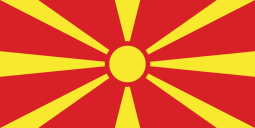

.svg.png)
.svg.png)
%3B_Flag_of_Serbia_and_Montenegro_(2003%E2%80%932006).svg.png)
.svg.png)
.svg.png)
.svg.png)
.svg.png)
.svg.png)
.svg.png)
.svg.png)


%3B_Flag_of_Serbia_and_Montenegro_(2003%E2%80%932006).svg.png)

%3B_Flag_of_Serbia_and_Montenegro_(2003%E2%80%932006).svg.png)

%3B_Flag_of_Serbia_and_Montenegro_(2003%E2%80%932006).svg.png)
.svg.png)
.svg.png)

.svg.png)
.svg.png)

.svg.png)
%3B_Flag_of_Serbia_and_Montenegro_(2003%E2%80%932006).svg.png)
.svg.png)
.svg.png)
.svg.png)
.svg.png)

.svg.png)
%3B_Flag_of_Serbia_and_Montenegro_(2003%E2%80%932006).svg.png)
.svg.png)
.svg.png)
.svg.png)
%3B_Flag_of_Serbia_and_Montenegro_(2003%E2%80%932006).svg.png)
%3B_Flag_of_Serbia_and_Montenegro_(2003%E2%80%932006).svg.png)

%3B_Flag_of_Serbia_and_Montenegro_(2003%E2%80%932006).svg.png)





.svg.png)
%3B_Flag_of_Serbia_and_Montenegro_(2003%E2%80%932006).svg.png)

.svg.png)
.svg.png)
.svg.png)
.svg.png)
.svg.png)
%3B_Flag_of_Serbia_and_Montenegro_(2003%E2%80%932006).svg.png)
.svg.png)
.svg.png)




.svg.png)
%3B_Flag_of_Serbia_and_Montenegro_(2003%E2%80%932006).svg.png)




.svg.png)
.svg.png)
%3B_Flag_of_Serbia_and_Montenegro_(2003%E2%80%932006).svg.png)
%3B_Flag_of_Serbia_and_Montenegro_(2003%E2%80%932006).svg.png)
.svg.png)



%3B_Flag_of_Serbia_and_Montenegro_(2003%E2%80%932006).svg.png)
%3B_Flag_of_Serbia_and_Montenegro_(2003%E2%80%932006).svg.png)

.svg.png)

.svg.png)
.svg.png)
.svg.png)
%3B_Flag_of_Serbia_and_Montenegro_(2003%E2%80%932006).svg.png)
%3B_Flag_of_Serbia_and_Montenegro_(2003%E2%80%932006).svg.png)
.svg.png)
%3B_Flag_of_Serbia_and_Montenegro_(2003%E2%80%932006).svg.png)
%3B_Flag_of_Serbia_and_Montenegro_(2003%E2%80%932006).svg.png)


.svg.png)
%3B_Flag_of_Serbia_and_Montenegro_(2003%E2%80%932006).svg.png)
.svg.png)

.svg.png)
.svg.png)

%3B_Flag_of_Serbia_and_Montenegro_(2003%E2%80%932006).svg.png)
.svg.png)
%3B_Flag_of_Serbia_and_Montenegro_(2003%E2%80%932006).svg.png)
%3B_Flag_of_Serbia_and_Montenegro_(2003%E2%80%932006).svg.png)


.svg.png)
.svg.png)
%3B_Flag_of_Serbia_and_Montenegro_(2003%E2%80%932006).svg.png)
.svg.png)
.svg.png)

.svg.png)


.svg.png)
.svg.png)

.svg.png)


.svg.png)

%3B_Flag_of_Serbia_and_Montenegro_(2003%E2%80%932006).svg.png)
.svg.png)
.svg.png)
.svg.png)


%3B_Flag_of_Serbia_and_Montenegro_(2003%E2%80%932006).svg.png)




.svg.png)
.svg.png)
%3B_Flag_of_Serbia_and_Montenegro_(2003%E2%80%932006).svg.png)
%3B_Flag_of_Serbia_and_Montenegro_(2003%E2%80%932006).svg.png)



.svg.png)
%3B_Flag_of_Serbia_and_Montenegro_(2003%E2%80%932006).svg.png)
.svg.png)
.svg.png)
.svg.png)
.svg.png)
.svg.png)
.svg.png)



.svg.png)
%3B_Flag_of_Serbia_and_Montenegro_(2003%E2%80%932006).svg.png)
%3B_Flag_of_Serbia_and_Montenegro_(2003%E2%80%932006).svg.png)

.svg.png)
%3B_Flag_of_Serbia_and_Montenegro_(2003%E2%80%932006).svg.png)
.svg.png)
.svg.png)
.svg.png)

%3B_Flag_of_Serbia_and_Montenegro_(2003%E2%80%932006).svg.png)

.svg.png)

.svg.png)
.svg.png)
%3B_Flag_of_Serbia_and_Montenegro_(2003%E2%80%932006).svg.png)

.svg.png)
Notable foreign players
Flags indicate the national teams the players played for. Players that played for two different national teams have the flags of both national teams.












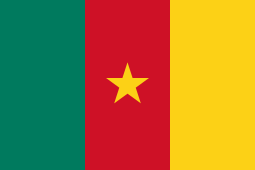




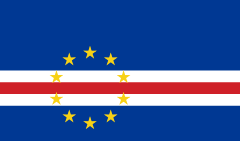




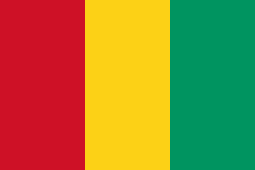



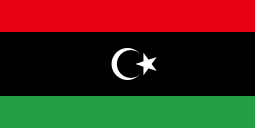
























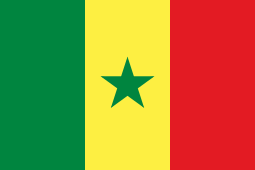
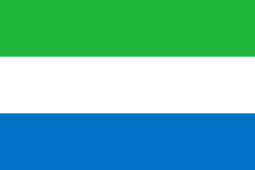





For a list of all FK Partizan players with a Wikipedia article, see Category:FK Partizan players.
Affiliated clubs
Club officials
Partizan technical staff
As of 3 July 2020, the staff includes:[149]
|
Partizan management
As of 3 July 2020[150]
|
Managerial history
Below is a list of Partizan managers from 1945 until the present day.[151]
Club presidents
The full list of Partizan's presidents is given below.[152]
|
|
Ownership and finances
Partizan operates as a sports association, as part of Partizan Sports Association, which includes 26 clubs in different sports, but it has complete independence regarding organisation, management, finances, material goods and facilities. In 2010, the club's non-consolidated operating revenues amounted to €21.2 million and EBITDA amounted to €3.5 million.[153]
Shirt sponsors and manufacturers
|
|
*Only European and Domestic Cup matches
See also
References
- "STADIUM". partizan.rs. Retrieved 14 April 2020.
- "Crno-beli rođendan" (in Serbian). Sportske.net. Retrieved 17 September 2012.
- "Trophies". Partizan.rs. Archived from the original on 26 June 2014. Retrieved 14 September 2012.
- "Tabele-prvi-i-drugi-liga-Jugoslavije" (in Bosnian). Bihsoccer.com. Archived from the original on 22 June 2012. Retrieved 14 September 2012.
- "Club history". Partizan.rs. Archived from the original on 7 October 2012. Retrieved 12 March 2013.
- "Stadium info". Partizan.rs. Retrieved 12 March 2013.
- "FK Partizan". UEFA.com. Retrieved 18 September 2012.
- "1965/66: Madrid make it six". UEFA.com. Retrieved 14 September 2012.
- "Partizan Beograd – The Black and Whites of Belgrade". FIFA.com. Retrieved 18 September 2012.
- "Makedonski "grobari" imaju stotinak karata za meč sa Škendijom" (in Serbian). Blic. Archived from the original on 28 July 2013. Retrieved 18 September 2012.
- "Pola Srbije navija za Crvenu zvezdu" (in Serbian). Večernje novosti. Retrieved 14 September 2012.
- "(VIDEO) PARTIZAN - ZVEZDA 7:1 Derbi kada su NOVINARI čestitali PROTIVNIKU na pobedi!". INFORMER (in Serbian). Retrieved 7 September 2019.
- "Himna Partizana Tekst Pesme - Partizan". www.tekstovi.org. Retrieved 7 September 2019.
- cbnostalgija (4 August 2019). "Parni valjak". Crno-bela Nostalgija (in Serbian). Retrieved 7 September 2019.
- "Monthly Report 9". www.football-observatory.com. Retrieved 1 October 2016.
- "Weekly Post 271". football-observatory.com. Retrieved 3 November 2019.
- "Club foundation". politika.rs. Retrieved 9 July 2017.
- "Istorija kluba" (PDF) (in Serbian). Partizan.rs. Retrieved 20 September 2012.
- "Club history". partizan.rs. Retrieved 27 February 2012.
- cbnostalgija (9 May 2019). "Osnivači Partizana". Crno-bela Nostalgija (in Serbian). Retrieved 3 August 2019.
- "Silvester Šereš – strelac prvog gola u istoriji Partizana!". crnobelanostalgija.com. 23 January 2017. Retrieved 31 July 2020.
- "ТРЕНЕРИ". FK PARTIZAN (in Serbian). Retrieved 31 August 2019.
- "-=1945". www.cska-games.ru. Retrieved 21 December 2019.
- "Sezona 1946/47 i prva titula" (in Serbian). partizan.rs. Archived from the original on 18 April 2011. Retrieved 14 September 2012.
- "Sezona 1948/49 i druga titula" (in Serbian). partizan.rs. Archived from the original on 9 July 2011. Retrieved 14 September 2012.
- "Treca titula" (in Serbian). partizan.rs. Archived from the original on 15 April 2011. Retrieved 14 September 2012.
- "Druga zaredom – cetvrta ukupno" (in Serbian). partizan.rs. Archived from the original on 12 April 2011. Retrieved 14 September 2012.
- "Treca titula u nizu – peta ukupno" (in Serbian). partizan.rs. Archived from the original on 12 April 2011. Retrieved 14 September 2012.
- "Sezona 1964/65 i sesta titula" (in Serbian). partizan.rs. Archived from the original on 17 April 2011. Retrieved 14 September 2012.
- Partizan Belgrade – Sparta Prague 5-0 (1966)
- "13 April 1966 European Cup vs Partizan Belgrade". aboutmanutd.com. Archived from the original on 5 November 2012. Retrieved 14 September 2012.
- Partizan Belgrade – Manchester United 2-0 (1966)
- "1965/66 European Champions Clubs' Cup". uefa.com. Retrieved 14 September 2012.
- "1965/66: Madrid make it six". uefa.com. Retrieved 14 September 2012.
- "Sezona 1975/76 – veliki povratak i 7 titula" (in Serbian). partizan.rs. Archived from the original on 23 April 2011. Retrieved 14 September 2012.
- "Sezona 1977/78 – Osma titula" (in Serbian). partizan.rs. Archived from the original on 17 April 2011. Retrieved 14 September 2012.
- "Dragan Mance" (in Serbian). sport.blic.rs. Archived from the original on 7 September 2012. Retrieved 14 September 2012.
- Gravediggers Canada 1987 (13 October 2008). "Partizan – QPR (4–0) Remix on YouTube". Retrieved 10 June 2011.
- "Top 100: Greatest matches 70–61". uk.eurosport.yahoo.com. Retrieved 26 September 2009.
- "3. septembra 1985. poginuo Dragan Mance" (in Serbian). telegraf.rs. Retrieved 16 September 2012.
- "Dragan Mance dobio ulicu" (in Serbian). b92.net. Retrieved 14 June 2011.
- "Sezona 1985/86" (in Serbian). partizan.rs. Archived from the original on 13 April 2011. Retrieved 14 September 2012.
- Saga over As Dong Joins Man Utd at china.org.cn, 18-1-2007, Retrieved 5-4-2012
- wordpress.com – Kosovo: Europa’s Mafia Staat
- Steven Erlanger, 'Human-rights Group Assails Nato For Yugoslavia Bombing Campaign', Chicago Tribune, Chicago, 8 June 2000,
- "Sezona 2001/02" (in Serbian). partizan.rs. Archived from the original on 5 June 2011. Retrieved 14 September 2012.
- "Sezona 2002/03" (in Serbian). partizan.rs. Archived from the original on 12 April 2011. Retrieved 14 September 2012.
- "Njukasl snažno pogođen pobedom Partizana 0:1" (in Serbian). bbc.co.uk/sr. Retrieved 14 September 2012.
- "Partizan sa Realom, Portom i Marsejom! (raspored)" (in Serbian). b92.net. Retrieved 14 September 2012.
- "Od Livorna do Glazgova" (in Serbian). novosti.rs. Retrieved 14 September 2012.
- "Slaviša Jokanović trener Partizana" (in Serbian). politika.rs. Retrieved 14 September 2012.
- "Brazilac Žuka u Partizanu" (in Serbian). b92.net. Retrieved 14 September 2012.
- "Sezona 2007/08" (in Serbian). partizan.rs. Archived from the original on 5 June 2011. Retrieved 14 September 2012.
- "Sezona 2008/09" (in Serbian). partizan.rs. Archived from the original on 15 April 2011. Retrieved 14 September 2012.
- ""Grobari" sahranili Partizan u Evropi" (in Serbian). sport.blic.rs. Retrieved 14 September 2012.
- "Partizan disqualified from UEFA Cup". uefa.com. Union of European Football Associations. 26 July 2007. Archived from the original on 26 May 2008. Retrieved 14 May 2008.
- "Partizan decision deferred". uefa.com. Union of European Football Associations. 31 July 2007. Archived from the original on 19 May 2008. Retrieved 14 May 2008.
- "MONDO: Zvezdin Kleo je igrač Partizana!" (in Serbian). mondo.rs. Archived from the original on 16 April 2013. Retrieved 14 September 2012.
- "Partizan power to record victory". uefa.com. Retrieved 14 September 2012.
- "Partizan sa Seviljom, Štutgartom, Sampdorijom i Standardom" (in Serbian). politika.rs. Retrieved 14 September 2012.
- "Partizan u grupi sa Šahtjorom, Brižom i Tuluzom" (in Serbian). rts.rs. Retrieved 14 September 2012.
- "Stanojević umesto Stevanovića" (in Serbian). b92.net. Retrieved 14 September 2012.
- "Sezona 2009/10" (in Serbian). partizan.rs. Archived from the original on 9 April 2011. Retrieved 14 September 2012.
- "Sezona 2010/11 i dupla kruna" (in Serbian). partizan.rs. Archived from the original on 5 June 2011. Retrieved 14 September 2012.
- "Partizan u Ligi šampiona!" (in Serbian). novosti.rs. Retrieved 14 September 2012.
- "Liga šampiona: Partizan u grupi sa Arsenalom, Šahtjorom i Bragom!" (in Serbian). sport.blic.rs. Retrieved 14 September 2012.
- "Ex-Chelsea-Coach Grant übernimmt Partizan Belgrad" (in German). The Focus. Retrieved 20 September 2012.
- "Grant to leave Partizan at end of season". FourFourTwo. 17 May 2012.
- "Partizan smenio Vermezovića, Rašović novi trener!" (in Serbian). sportal.rs. 7 June 2013. Archived from the original on 18 May 2015.
- "Partizan šampion! Crno-beli se izjednačili sa Zvezdom po broju titula!" (in Serbian). The Blic. 22 May 2013. Archived from the original on 18 May 2015.
- "Tun deklasirao očajni Partizan" (in Serbian). b92.net. 29 August 2013.
- "Partizan opet u Ligi Evrope!" (in Serbian). b92.net. Retrieved 28 August 2014.
- "Partizan u grupi sa Totenhemom, Bešiktašem i Asterasom" (in Serbian). mozzartsport.com. Retrieved 29 August 2014.
- "Liga Evrope: Partizan sa Bilbaom, AZ Alkmarom i Augzburgom" (in Serbian). novosti.rs. Retrieved 28 January 2016.
- "Partizan too strong for ten-man AZ". uefa.com. Retrieved 28 January 2016.
- "Partizan score late to beat AZ and close on last 32". uefa.com.
- "Ten-man Partizan power to Augsburg win". uefa.com.
- Бобадиља срушио сан Партизана о пролећу у Европи! (in Serbian). RTS. Retrieved 9 June 2016.
- "Crno-beli složni: Velika stvar što smo osvojili Kup bez primljenog gola!" (in Serbian). mozzartsport.com. Retrieved 9 June 2016.
- "PENAL DRAMA Partizan sa bele tačke ispao iz Evrope!" (in Serbian). blic.rs. 21 July 2016. Retrieved 22 May 2017.
- "Milenković doneo duplu krunu Partizanu!". B92.net (in Serbian). Retrieved 31 July 2017.
- "Marko Nikolic is the new manager of Videoton FC". vidi.hu. 6 June 2017. Retrieved 6 June 2017.
- "Djukic regresa para meter al Partizan en la Champions" [Djukic returns to put Partizan in Champions] (in Spanish). Super Deporte. 7 June 2017. Retrieved 12 July 2017.
- "Партизан разбиo Видеотон са 4:0, пласирао се у групну фазу Лиге Европе и зарадио 2,6 милиона евра (ВИДЕО)" (in Serbian). Sportski Žurnal. 24 August 2017. Retrieved 25 August 2017.
- "PARTIZAN DOBIO GRUPU: Spektakl u Humskoj, ali crno-beli dobro prošli" (in Serbian). HotSport. 25 August 2017. Retrieved 25 August 2017.
- "Liga Evrope: Zvezda protiv CSKA Moskve, Partizan ide na Viktoriju" (in Serbian). Noizz. 11 December 2017. Retrieved 11 December 2017.
- UEFA.com. "UEFA Europa League - Beşiktaş-Partizan". UEFA.com. Retrieved 30 June 2019.
- N1, Piše (27 March 2019). "Savo Milošević novi trener Partizana". Dnevni list Danas (in Serbian). Retrieved 30 June 2019.
- "Crvena Zvezda vs. Partizan - 23 May 2019 - Soccerway". int.soccerway.com. Retrieved 30 June 2019.
- "Rikardo Gomeš ili Leonardo? Napadač Partizana će imati ekstra motiv da postigne gol na Marakani!". Sportske.net. Retrieved 30 June 2019.
- Bataković, Marko. "UEFA ŠALJE MILIONE U HUMSKU! Evo koliko je Partizan zaradio samo od plasmana u Ligu Evrope!". Blic.rs (in Serbian). Retrieved 31 August 2019.
- Catterall, Will (1 August 2019). "FK Partizan 3 Connah's Quay Nomads 0 - Nomads' Europa League adventure ends". northwales. Retrieved 31 August 2019.
- "ЈЕНИ МАЛАТИЈАСПОР - ПАРТИЗАН 1:0(1:0)". FK PARTIZAN (in Serbian). Retrieved 31 August 2019.
- "МОЛДЕ - ПАРТИЗАН 1:1(0:0)". FK PARTIZAN (in Serbian). Retrieved 31 August 2019.
- UEFA.com. "Europa League 2019/20: all the fixtures". UEFA.com. Retrieved 31 August 2019.
- UEFA.com. "Partizan-AZ Alkmaar | UEFA Europa League". UEFA.com. Retrieved 21 September 2019.
- "Europa League: Partizan Belgrade cheered on by 22,000 children after ban for racism". 20 September 2019. Retrieved 21 September 2019.
- "Da li grb FK Partizan treba da sadrži političke simbole SFRJ?" (in Serbian). The Danas. Retrieved 22 September 2012.
- "Grb Partizana – istorijat" (in Serbian). Partizan.rs. Retrieved 22 September 2012.
- "2007–2008" (in Serbian). Partizan.rs. Retrieved 14 September 2012.
- "izaberi PARTIZAN – BOJE KLUBA" (in Serbian). izaberipartizan.com. Retrieved 23 May 2013.
- "Svi dresovi Partizana 1945. – 2011" (in Serbian). Partizan.rs. Retrieved 23 September 2012.
- "Slike šampionskih ekipa i osvajača kupova" (in Serbian). Partizan.rs. Retrieved 25 September 2012.
- "Partizan Beograd – The Black and Whites of Belgrade". FIFA.com. Retrieved 17 September 2012.
- "Stadium info". Partizan.rs. Retrieved 29 September 2012.
- "Crno-bele koči dozvola da izgrade novi stadion" (in Serbian). novosti.rs. Retrieved 18 March 2013.
- "STADIUM". partizan.rs. Retrieved 14 April 2020.
- "Stadion Partizana" (in Serbian). The Blic. Archived from the original on 21 July 2013. Retrieved 29 September 2012.
- "Yugoslavia – Cup Final Details 1947–2001". rsssf.com. Retrieved 27 November 2012.
- "Red Star end trophy drought, stay on course for double". The Reuters. Archived from the original on 12 July 2012. Retrieved 29 November 2012.
- "Youth School Belin – Lazarevic – Nadoveza". Partizan.rs. Archived from the original on 1 August 2014. Retrieved 4 December 2012.
- "FK Partizan organizuje internacionalne fudbalske kampove" (in Serbian). The Blic. Retrieved 4 December 2012.
- "Partizan škola fudbala – Australija" (in Serbian). Partizankampovi.rs. Archived from the original on 2 May 2012. Retrieved 4 December 2012.
- "Sports Center Partizan-Teleoptik". Partizan.rs. Retrieved 4 May 2011.
- "Partizan Beograd – Partizan: Ein Klub für die Geschichtsbücher" (in German). The UEFA. Retrieved 4 December 2012.
- "Partizan između Ajaksa i Barselone!" (in Serbian). The Sportal. Archived from the original on 17 February 2013. Retrieved 4 December 2012.
- UEFA.com (2 January 2020). "Fifty for the future: UEFA.com's ones to watch in 2020". UEFA.com. Retrieved 3 January 2020.
- "Pola Srbije navija za Crvenu zvezdu" (in Serbian). The Večernje novosti. Retrieved 14 September 2012.
- "Zvezdaši brojniji, Partizanovci vatreniji". Dnevni list Danas. Retrieved 1 October 2016.
- "Grobari iz Crne Gore i RS vraćeni sa granice" (in Serbian). The Press. Archived from the original on 4 October 2013. Retrieved 18 September 2012.
- "Grobari držali čas navijanja Interovcima" (in Serbian). The Sportal. Archived from the original on 21 October 2013. Retrieved 8 December 2012.
- "Supporters". KKPartizan.rs. Archived from the original on 25 October 2012. Retrieved 14 January 2013.
- "Das "ewige Derby"" (in German). Fifa.com. Retrieved 7 December 2012.
- "Football Fans: Partizan's Grobari". Footballcracy.com. Archived from the original on 3 July 2012. Retrieved 7 December 2012.
- "Bečka policija strepi od dolaska "grobara" na meč PAOK-a i Rapida" (in Serbian). The Blic. Archived from the original on 1 November 2012. Retrieved 14 January 2013.
- "Rusi prešli 1.000 kilometara kako bi u Kazanju bodrili Partizan!" (in Serbian). The Večernje novosti. Retrieved 14 January 2013.
- Mladenovic, Igor (25 September 2014). "Partizan Belgrade banner highlights ultra problem that is not going away | Igor Mladenovic". The Guardian.
- INTERVIEW WITH JUVENTUDE LEONINA (SPORTING CP – PORTUGAL) at ultras-tifo.net, 5-1-2008, retrieved 11-8-2016
- "Belgrade giants after more than bragging rights". FIFA.com. Retrieved 8 June 2013.
- "The Eternal derby turned into a fireworks fight". yahoo.com. Retrieved 18 March 2013.
- "50 Greatest Rivalries in World Football". Bleacher Report. Retrieved 18 March 2013.
- "The Inferno at Yesterday's Biggest Rivalry Game". theoffside.com. Archived from the original on 12 September 2012. Retrieved 9 April 2009.
- "DA LI STE ZNALI O VEČITOM DERBIJU?" (in Serbian). igrajmofudbal.com. Archived from the original on 18 February 2013. Retrieved 12 March 2013.
- "Crno-bela sećanja: Partizan – Crvena Zvezda 7:1 (video)" (in Serbian). jedan-nula.com. Retrieved 14 September 2012.
- "Međusobni skor fudbalske "velike četvorke"" (in Serbian). strategija.org. Retrieved 27 December 2019.
- "Interview with Taurunum Boys (Zemun, Serbia)".
- "Kassiesa Club Ranking".
- "Sasa Ilic" (in Serbian). srbijadanas.com. Retrieved 11 April 2017.
- "Stjepan Bobek" (in Serbian). blic.rs. Archived from the original on 26 February 2012. Retrieved 1 March 2012.
- "National Team Players". partizan.rs. Archived from the original on 1 September 2014. Retrieved 17 October 2012.
- reprezentacija.rs. "Najbolji strelci" (in Serbian). Retrieved 16 September 2012.
- "SFRJ: Zvezde su Partizan i Dinamo" (in Serbian). The Večernje novosti. Retrieved 18 September 2012.
- "Bilić: Partizan nije slučajno petostruki prvaka Srbije" (in Serbian). Kapiten.rs. Archived from the original on 30 July 2017. Retrieved 18 September 2012.
- "EUROPEAN CUP Season 1955–56". europeancuphistory.com. Retrieved 14 September 2012.
- "Njukasl snažno pogođen pobedom Partizana 0:1" (in Serbian). The BBC. Retrieved 14 September 2012.
- "ИГРАЧИ". partizan.rs. Retrieved 18 March 2019.
- "PARTIZAN". superliga.rs. Retrieved 19 July 2019.
- National team players at FK Partizan official website, retrieved 22-7-2015
- "СТРУЧНИ ШТАБ". partizan.rs. Retrieved 3 July 2020.
- "Partizan management 2015/16". partizan.rs. Archived from the original on 2 October 2014. Retrieved 15 September 2014.
- "Coaches". partizan.rs. Archived from the original on 22 October 2013. Retrieved 22 May 2013.
- "Presidents". partizan.rs. Archived from the original on 30 July 2014. Retrieved 14 September 2012.
- "Financial report". fi.apr.gov.rs. Retrieved 9 March 2012.
- "Partizan u dresovima "Robe di Kappa", nova meta Toričeli ?" (in Serbian). b92.net. Retrieved 5 June 2013.
- "Imlek sponzor Partizana" (in Serbian). b92.net. Retrieved 7 June 2013.
- "Počinje nova sezona" (in Serbian). partizan.co.rs/arhiva. Archived from the original on 16 June 2013. Retrieved 7 June 2013.
- "Porše novi sponzor Partizana" (in Serbian). b92.net. Retrieved 14 September 2012.
- "MSI generalni sponzor Partizana" (in Serbian). b92.net. Retrieved 22 August 2009.
- "FK Partizan i Adidas ponovo zajedno". blic.rs. Retrieved 12 July 2010.
- "EPS sponzor FK Partizan" (in Serbian). b92.net. Retrieved 10 September 2010.
- "Lav Pivo sponzor FK Partizan" (in Serbian). zurnal.rs. Retrieved 6 September 2012.
- "Најк Партизан сврстао у ред одабраних". zurnal.rs. Retrieved 1 July 2016.
External links
| Wikimedia Commons has media related to FK Partizan. |
- Official website (in Serbian and English)
- FK Partizan at UEFA
- Partizanopedia Unofficial website, about history and statistics of FK Partizan (in Serbian)
